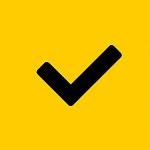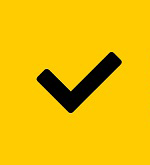Účastnili jsme se školení „Zvládání stresu a konfliktů: cesta k odolnosti a spokojenosti“
V červnu se naše dvě pracovnice Barbara Magendans a Tereza Antoňová zúčastnily školení v rámci projektu Erasmus+ na téma „Zvládání stresu a konfliktů: cesta k odolnosti a spokojenosti“. O tom, jak kurz probíhal se dočtete na řádcích níže, které sepsala lektorka Isabel Martinez z organizace ELA. Text je v anglickém jazyce.
How can we handle stress in a healthy way?
No one’s life is completely stress-free. We all have stress – at work or in our private life. Many of us face challenges in daily life that feel overstrained and demanding and when we exhaust the capacities to deal with the upcoming events, stress appears. It’s essential to learn how to cope with it appropriately and to decrease it effectively and to establish individual resources to keep on track and overcome stressful situations. If not, chronic and persistent stress can cause mental, physical and emotional illnesses.
The new edition of the course “Stress and Conflict Management: the way to resilience and satisfaction” took place in Bologna from 12/06/2023 till 16/06/2023. The participants came from all across Europe, with Mari and Tiina from Live-säätiö sr (Vocational College Live) in Finland, Barbara and Tereza from AVPO CZ in Czech Republic, Bernadette from Heilig Hart Instituut Heverlee in Belgium and Vanessa from MEKA LHII in Spain.
On the first day of the course we focused on the main topic: stress. We reflected interactively on what causes our personal stress and distinguished between good and bad stress (Eustress vs. Distress). Stress can be attainable and joyful if it’s moderate, however it is perceived as unmanageable, it causes negative emotional, physical, cognitive and behavioral outcomes. Accordingly we discussed good and bad coping mechanisms to deal with daily hassles and work-related stressors appropriately.
Often time management occurs as an elementary factor for stress. During the course we took time to get a deeper insight into our actual time management strategies through self-assessment tests, intergroup exchange and efficient time management strategies. The latter included methods to organize work tasks easily and effectively. These tools also help in remaining focused and conscious to assertively delegate tasks. Which gets us to another certain aspect of the course: communication styles.
While we analyzed various communication styles, we especially focused on speaking up in an assertive way. This helps us to communicate clearly, respectfully and it targets to collaborate on solutions. Furthermore, being (self-)assertive has benefits on our stress related health, because we are confident and capable of setting out boundaries and saying “No”.
Subsequently we got in touch with conflict management and highlighted positive and negative outcomes of a conflict. The participants discovered different conflict management styles people in daily life follow and further on we practiced these conflict and communication styles in a practical exercise to become aware of them actively. After discussing how we can manage conflicts and conflict types more efficiently we continued with the topics empathy, mindfulness and resilience.
For introducing these topics, we firstly focused on social emotional learning which requires self-awareness, so the participants had the chance to reflect on themselves and their feelings. In plenary we debated how we can overcome certain unpleasant emotions and everyone contributed with strategies and tools to do so. A well-known strategy which fosters empathy and helps dealing with emotions and stress is mindfulness. Concluding the course we used a resilient based method to finish the week with the flower of gratitude.
After one week spent together the participants discovered many helpful tools to manage their daily and work-related stress, their time and also to approaches to establish more resources. Overall it was a week with intercultural exchange and insights into other cultures, framed in a respectful, open minded and heartily atmosphere.
Discover more about this course here.
Článek si také můžete přečíst online ZDE.
Video ze školení ZDE.
Projekt byl realizován za finanční podpory Evropské unie v rámci Programu Erasmus+; klíčová akce 1: Vzdělávací mobilita jednotlivců. Výstupy projektu nereprezentují názory Evropské unie a Evropská unie neodpovídá za použití informací, jež jsou obsahem těchto výstupů.



